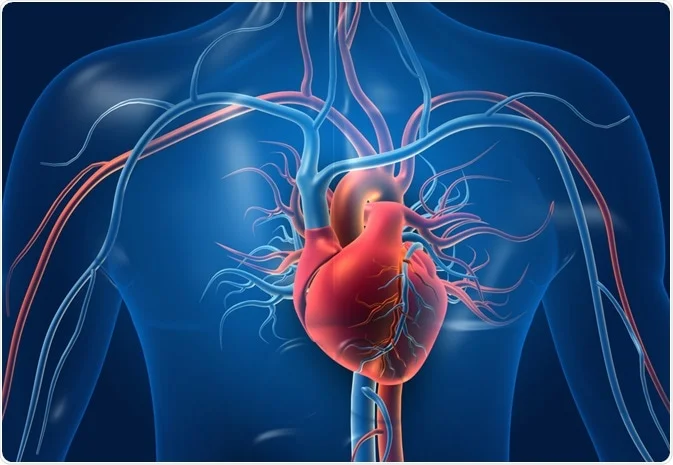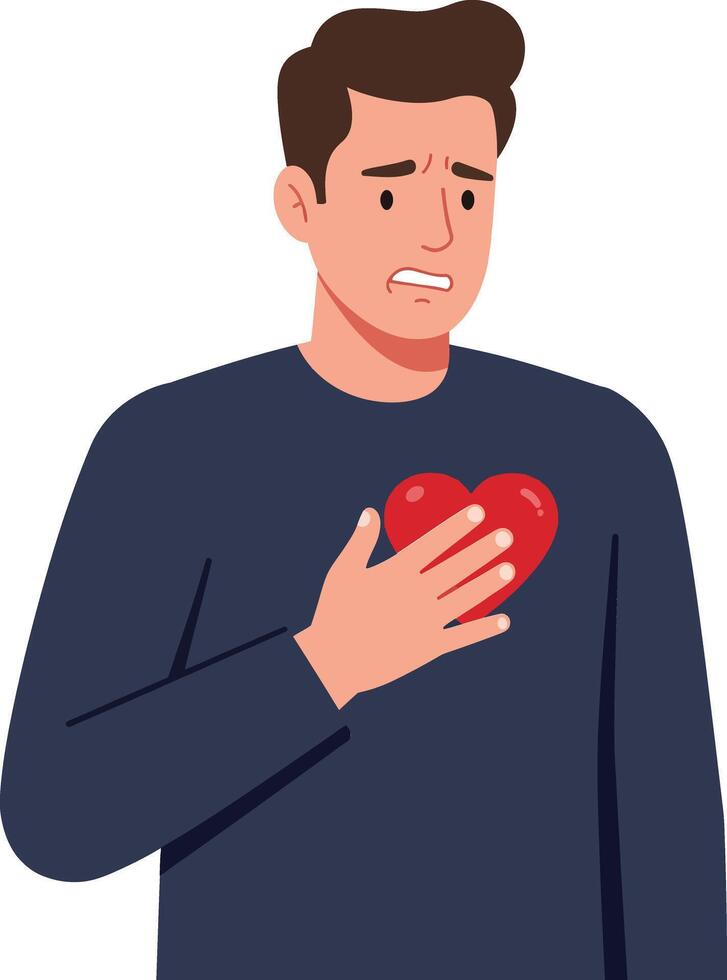Chest pain ranges from mild discomfort to severe, life-threatening symptoms

Chest pain ranges from mild discomfort to severe, life-threatening symptoms. While not all chest pain stems from heart issues, it is a key indicator that should not be ignored. Here’s information on heart pain, how it relates to heart conditions, and when to seek medical help:
What Does Heart Pain Feel Like?
Chest pain can manifest in different ways. For some, it may feel like a dull ache or tightness in the chest, while others may experience a sharp, stabbing pain. This pain can radiate to the shoulders, neck, jaw, or arms. Associated symptoms often provide clues about the underlying cause, especially when the source is related to heart health.
A specific type of heart pain, known as angina, occurs when blood flow to the heart is blocked, often due to coronary artery disease or blood clots. Angina episodes commonly intensify with activity and ease with rest. If the pain is severe or occurs at rest, it could signal a heart attack, requiring immediate medical attention. If chest pain arises from heart conditions, you may experience additional symptoms like:
- Fatigue
- Shortness of breath
- Heart Palpitations
- Fainting
- Leg swelling
- Nausea and Vomiting
What Heart Conditions Cause Pain?
Multiple heart conditions can lead to challenging symptoms, and understanding these possibilities is fundamental for early diagnosis and treatment. Some heart conditions that cause chest pain include:
- Coronary Artery Disease (CAD): This condition involves the narrowing or blockage of coronary arteries, often due to plaque buildup. Reduced blood flow leads to angina and, in severe cases, heart attacks.
- Heart Valve Disease: When heart valves do not function properly, it creates strain on the heart, potentially causing chest discomfort.
- Atrial Fibrillation and Other Arrhythmias: Irregular heart rhythms can reduce the heart’s efficiency, often leading to pain, palpitations, and fatigue.
- Congestive Heart Failure (CHF): CHF occurs when the heart is unable to pump blood effectively. It often contributes to chest discomfort alongside symptoms like swelling in the legs and shortness of breath.
- Inflamed Heart Muscles (Myocarditis): Myocarditis can result from infections or autoimmune conditions. Symptoms include pain, fatigue, and fast or irregular heartbeats.
- Aortic Dissection: This rare but dangerous condition occurs when there is a tear in the aorta, the main artery of the body, causing excruciating chest and back pain. Immediate medical intervention is needed for treatment.
When Do I See a Cardiologist?
Heart pain is a key symptom to monitor, especially when accompanied by other warning signs. You should consult a cardiologist promptly if your pain persists or worsens and is not relieved by rest. If your pain is accompanied by symptoms like fainting, shortness of breath, nausea, or swelling, contacting a specialist can help. If you have a family history of heart disease, it elevates your risk for heart conditions.
Working with a chest pain specialist or a cardiologist can help you track your condition and make an effective management plan. When already dealing with a known heart condition, if you experience new or worsening symptoms, contact your physician immediately. Recurring heart pain that arises during physical activity, or even at rest, warrants a professional evaluation. A cardiologist can use diagnostic tools to uncover the root cause and implement preventative or treatment strategies.
Learn More About Chest Pain Symptoms
Heart pain should always be taken seriously, as it may be a sign of serious underlying heart conditions. Whether the pain stems from angina or another cardiac issue, identifying the cause early on is key to protecting your health. If you have chest pain or other heart symptoms, seek medical attention immediately. Schedule an appointment with a cardiologist today, and take proactive steps now.
- What to Expect When Visiting a Foot and Ankle Specialist
- Causes of PTSD
- The Link Between Plantar Fasciitis and Weight Gain: What You Need to Know
- How Pet Ownership Can Positively Impact Life with Fibromyalgia
- The Importance of Stretching and Flexibility in Sports Medicine
Dr. Emma Green is a health and wellness expert with over 10 years of experience in nutrition and fitness. Passionate about helping others live their healthiest lives, Dr. Green shares practical advice on wellness, nutrition, and sustainable living through LivingSpristine.






